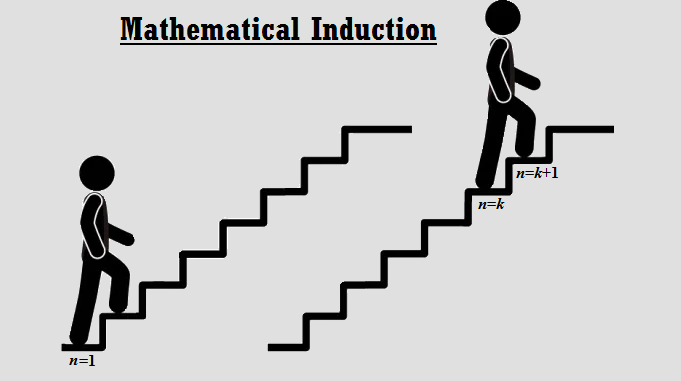
Prove Inequalities using Mathematical Induction examples with solutions
Question 1:
Prove the following inequality by the principle of mathematical induction:
, n ∈ N.
Solution:
We can write,
Step 1:
We first show that the basis for induction P(1) is true, that is, P(n) is true for .
Left Side ,
Right Side .
Since, , that is, Left Side > Right Side
Hence, P(1) is true, that is, P(n) is true for .
Step 2:
Assume that P(k) is true for some natural number k, that is,
We need to prove that P(k +1) is also true.
Because P(k) is true, so we have,
Add to both sides:
.
That is, we get
.
Thus, P(k +1) is true whenever P(k) is true.
Therefore, from the principle of mathematical induction, the statement:
is true for all natural number n.
Question 2:
Prove the following statement for all integers by the principle of mathematical induction:
.
Solution:
We can write,
Step 1:
We first show that the basis for induction P(4) is true, that is, P(n) is true for .
Left Side ,
Right Side .
Since, , that is,
, that is, Left Side > Right Side
Hence, P(4) is true, that is, P(n) is true for .
Step 2:
Assume that P(k) is true for all integers , that is,
We need to prove that P(k +1) is also true, that is, we need to prove that if
.
To prove required from this, consider,
(Apply
by the induction hypothesis)
(Because
so
)
.
That is, we get
.
Thus, P(k +1) is true whenever P(k) is true for all integers .
Therefore, from the principle of mathematical induction, the statement:
is true for all integers .
Tags: mathematical induction examples with solutions, prove inequalities by induction
Copyrighted Material © 2019 - 2024 Prinsli.com - All rights reserved
All content on this website is copyrighted. It is prohibited to copy, publish or distribute the content and images of this website through any website, book, newspaper, software, videos, YouTube Channel or any other medium without written permission. You are not authorized to alter, obscure or remove any proprietary information, copyright or logo from this Website in any way. If any of these rules are violated, it will be strongly protested and legal action will be taken.

Be the first to comment